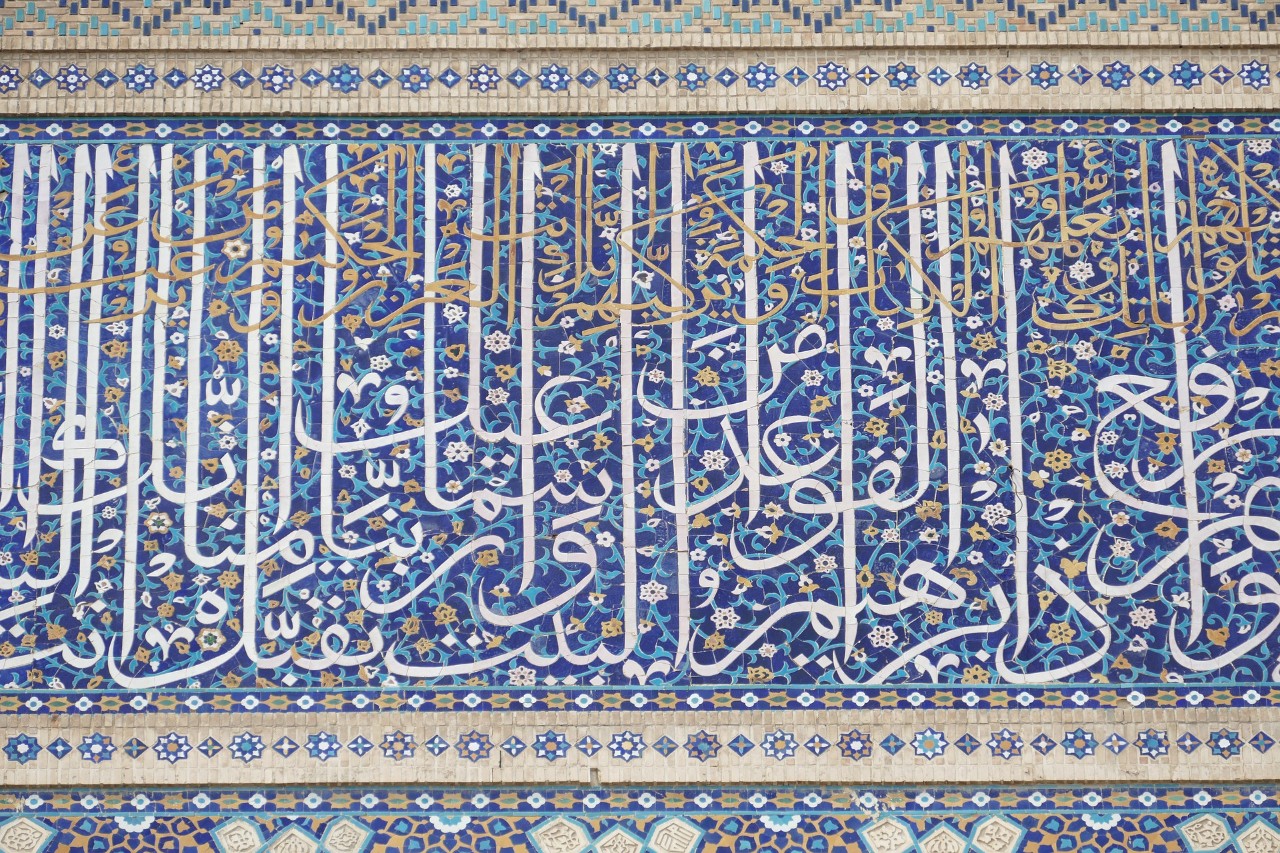
What is Arabic Studies?
Explore the UC major to discover whether it’s right for you
Have you ever considered learning another language? Exploring a different culture, religion, or society? If so, you may want to learn more about the Arabic Studies program offered through the University of Cincinnati.
Encompassing nearly two-dozen countries, the Arab world has a population of about 300 million people. More than 1 billion people use Arabic as a vital component of their daily lives. In fact, in 1974 the United Nations adopted Arabic as one of its six official languages.
The Arabic world has strategic significance for the U.S. government and military, creating a demand for its speakers and incentive for more learners. Offered through UC’s College of Arts and Sciences (A&S), Arabic Studies offers students a robust, topical course selection ranging from language and literature to explorations of Middle East politics.

Associate professor of Romance and Arabic Languages and Literatures Grace Thome
As part of the A&S Department of Romance Languages and Literatures, the program’s goal is to provide students with increased awareness of other cultures, developed communication and critical thinking skills, experiential learning, and intercultural competence.
These skills are vital to success in our diverse and ever-changing global community, says Grace Thome, Arabic language coordinator and associate professor. “We cannot live in our own cocoon forever,” she says. “We must spread out and learn new cultures.” Arabic Studies integrates well with a number of other academic disciplines, from political science to international affairs to marketing and communication, she says. Studies can opt to major or minor in Arabic Studies, or earn credit through a business certificate.
Students enrolled in the program have opportunities to gain real world experience, whether through study abroad opportunities, service-learning experiences, or internships.
Career and graduate possibilities
- Foreign correspondent, reporter, translator
- International banker, consultant
- Foreign service officer
- Intelligence analyst
- Government relations specialist
- Interpreter
- Contractual or corporate consultant
- Teaching and academic research
Notable classes
All Arabic majors have some flexibility with their course offerings and are encouraged to pair their degree with a minor or double major. There are twelve required courses, three required electives that must relate to the Middle East in some way and all the normal general education requirements. For a major, students must complete forty total semester hours and the minor is twenty-two. This flexibility enables students to double dip with different majors or minors.
- Sufism: Mysticism from Arabia to California
- Arab Women Novelists
- Love and Sexuality in Arabic Literature and Film
- Hispano-Arabic Culture & Literature
- Arab Cinema: Culture and Identity
- Arabic Culture
- Arabic Online
Take it from a graduate
Gordon Goodwin, a 2020 graduate, states that “I have had an incredibly positive experience with the College of Arts and Sciences faculty, especially those in the Arabic department. They provide a close-knit and supportive community in which they genuinely know and care about you.”
Featured image at top: Mosque exterior in Uzbekistan. Credit/Pixabay

By Adrianna Henderson
Graduate Assistant, Marketing and Communication, College of Arts and Sciences
artscinews@ucmail.uc.edu
Related Stories
UC Journalism to host Hall of Fame, Young Alumni Awards
Event: April 24, 2025 6:00 PM
The College of Arts and Sciences’ journalism department will host the Hall of Fame and Young Alumni Awards to celebrate the achievements and accomplishments of its graduates. Induction into the UC Journalism Hall of Fame is a special honor reserved for UC alumni who have excelled in the profession of journalism and media, or individuals who have made a significant contribution to journalism at UC.
Bradford pear trees look pretty, smell awful. Why are they...
April 2, 2025
WLWT talks to UC biology Professor Theresa Culley about Ohio's ban on the sale or planting of nonnative and invasive pear trees. The trees are showing up in many parks and wild areas where they are crowding out native species.
Bird-safe glass added to UC building
April 2, 2025
UC biologist Ronald Canterbury tells Fox19 that bird-safe glass in buildings can save untold numbers of birds.